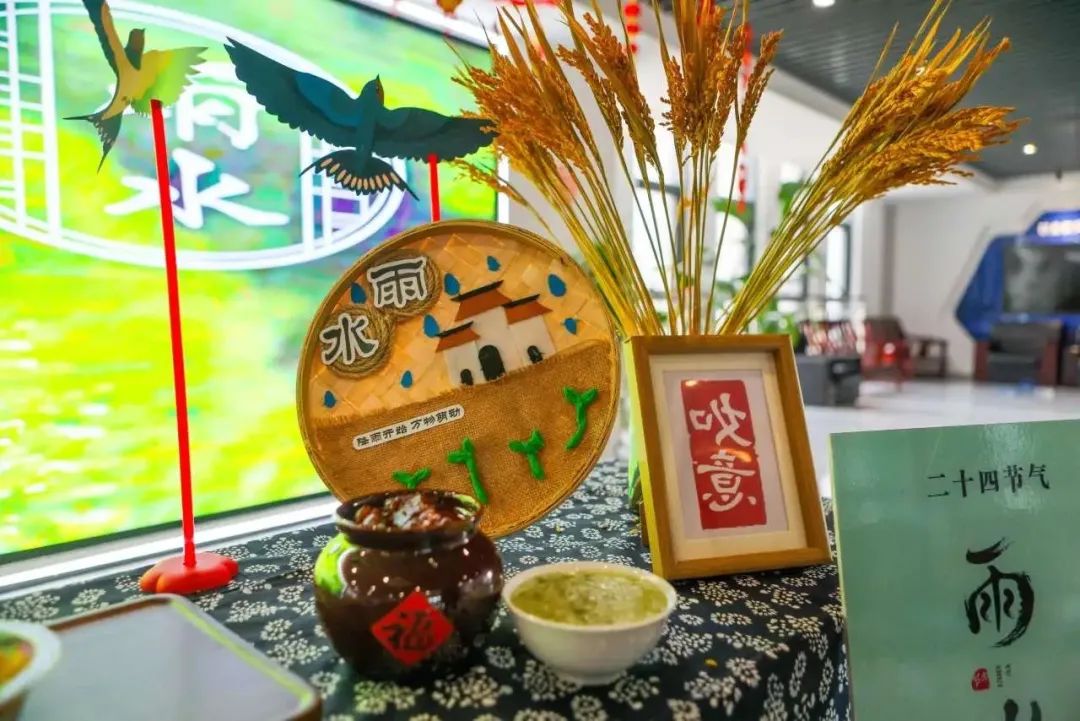



Rain Water, which typically falls between February 18 and 20 and lasts until around March 4 or 5, is the second of China's 24 solar terms. These terms are more than just markers of time-they are a testament to the profound agricultural heritage and astronomical ingenuity that have shaped the Chinese culture for thousands of years. Recently, Jiangsu Vocational Institute of Commerce launched the event of “International Students Meet Chinese Solar Terms”. Through a series of initiatives, the event tells the stories behind these solar terms, introduces traditional customs and cultural connotations, allowing international students to immerse themselves in the charm of traditional Chinese culture. This effort aims to jointly inherit and promote the precious cultural heritage of the Chinese nation.

Among the participants, an international student from Cameroon found herself enchanted by the charm of the Chinese culture in the Rain Water solar term.
Holding a bowl of steaming shepherd's purse porridge, she, amidst the swirling steam, touched the pulse of the 24 solar terms for the first time. So, Rain Water isn't just a weather forecast; it's a love letter from the Chinese to nature, she exclaimed in amazement. She mentioned that in Africa, people summon the rainy season with drumbeats. In China, however, people read spring from the patterns of clouds. Her Chinese classmates even taught her to write “Happy Rain on a Spring Night” (a poem by Du Fu). Is this the Chinese version of a rain summoning signal? she joked with a smile.

Recently, she and her friends have also experienced numerous Chinese folk customs, such as predicting harvest with popped rice, savoring spring buds, and receiving blessing water. Initially, “predicting harvest with popped rice” was a method to foretell the harvest by popping glutinous rice. Popped rice, known as “fire-cracked rice”, involves drying a large pot, then adding glutinous rice and regular rice, and popping them under high heat. This practice gradually evolved into eating popped rice during the Rain Water period to wish for a good harvest year.
She also learned about the Chinese concept of “eating according to the season”. On the day of Rain Water, people eat a few bites of newly sprouted spring buds, such as shepherd's purse, Chinese toon, and bean sprouts. A single bite captures the best of spring. For example, eating bamboo shoots during Rain Water not only enjoys their freshness and tenderness but also symbolizes a continuous rise in fortune.

Moreover, the custom of receiving blessing water was a novel experience for her. It is said that during the Rain Water solar term, oil-paper umbrellas are not just tools for sheltering from the rain but also magical instruments for receiving blessings and good fortune. The “receiving blessing water” custom reflects the Chinese reverence for nature and longing for a beautiful life. Oil-paper umbrellas are not only practical tools but also cultural symbols, carrying people's hopes for a happy life.
The Chinese say, 'Rain brings good fortune', and she'd like to share this 'spring shower blessing' with all of you, said her. Now, having fully appreciated the charm of Chinese culture, she has become a passionate advocate for China and Chinese culture. On her personal social media account, she is tirelessly promoting outstanding traditional Chinese culture.